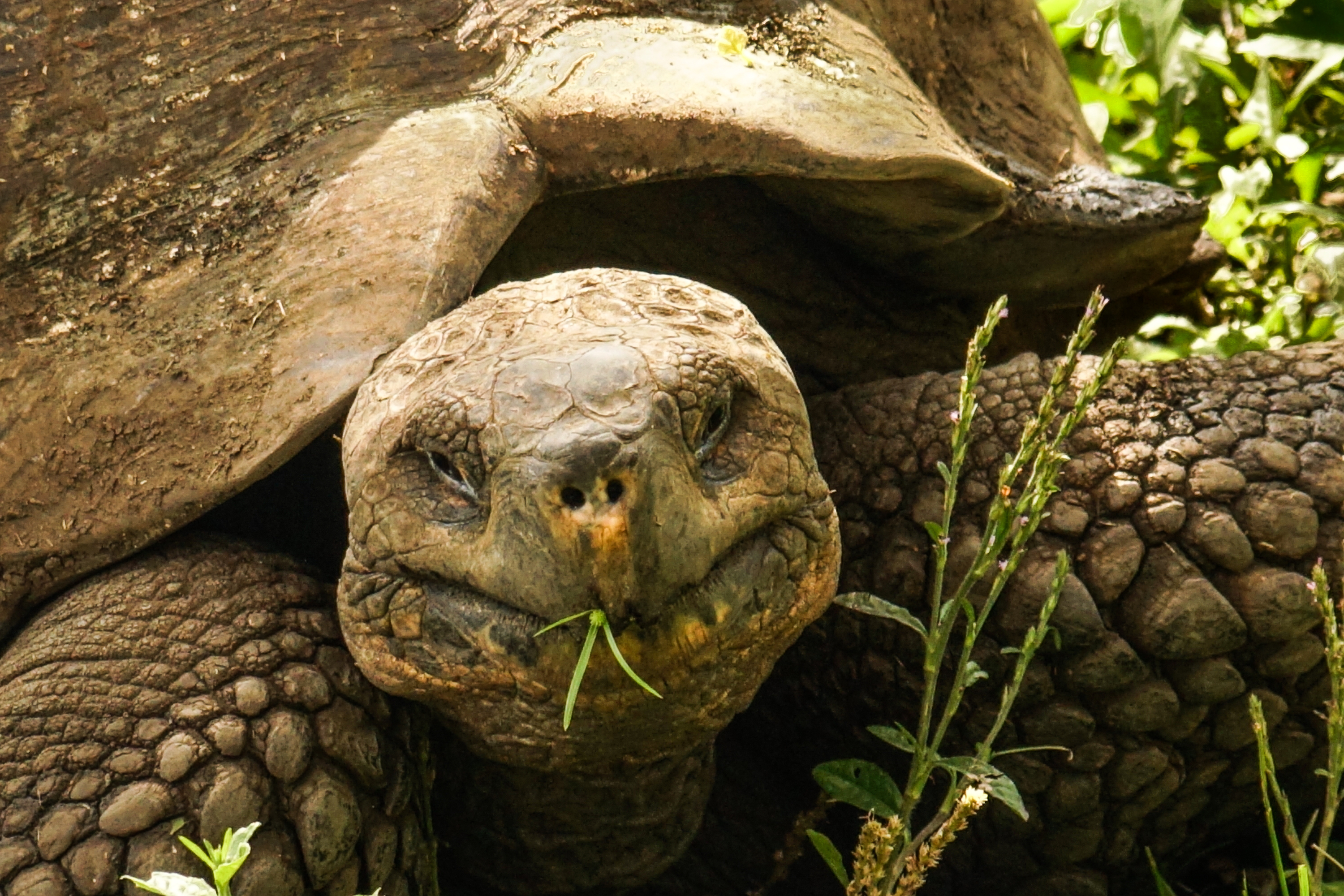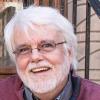
A giant tortoise on Santa Cruz Island in The Galápagos (NCR photo/Bill Mitchell)
EarthBeat Weekly
Your weekly newsletter about faith and climate change
Dec. 20, 2019
Once the human being declares independence from reality and behaves with absolute dominion, the very foundations of our life begin to crumble… This situation has led to a constant schizophrenia, wherein a technocracy which sees no intrinsic value in lesser beings coexists with the other extreme, which sees no special value in human beings… A misguided anthropocentrism leads to a misguided lifestyle… [And] the rise of relativism that sees everything as irrelevant unless it serves one's own immediate interests.
Here’s a look at what’s new on EarthBeat this week:
- Brian Roewe assesses results from the 25th United Nations conference on climate change and concludes that it accomplished few of its most important objectives. Catholic climate organizations were outspoken in their disappointment with the lack of progress.
- In his meditation for the third week of Advent, Arthur Jones encourages us to be bold in our challenge to the enforcers of a status quo that endangers the planet and threatens our survival.
- In her Small Earth Story, Trudy Macdonald describes the efforts of her town’s recycling committee to reduce single-use plastics as one of the most effective ways of living up to the committee’s new name: Zero Waste Melrose.
- Sarah Salvadore reports from the Religions for Peace summit in New York City that African leaders at the conference called on participants to do more to address climate change on the continent, one of the regions of the world least responsible for climate change -- and most hard hit by it.
- Our Interfaith Climate Tracker is updated constantly throughout the day with bulletins from a wide range of groups. You’ll find it at the bottom of the EarthBeat homepage or on its own page within Twitter.
Other climate-related news from this week:
- Grist, the climate site with the slogan, "Don't Freak out. Figure it out," notes that last night's Democratic debate was the first to devote significant time (13 minutes) to the climate issue.
- The Washington Post reports that “Goldman Sachs just became the first big U.S. bank to say it will no longer finance new drilling or oil exploration in the Arctic.”
- Edie, a British environmental site, recaps the top sustainability stories of 2019.
- The New York Times recommends some climate-related documentaries to watch over the holidays (part of the "One thing you can do" feature in the paper's Climate FWD newsletter).
Upcoming events: The EarthBeat events calendar often includes free webinars that you can participate in from anywhere. Here's one coming up in January that we thought you might be interested in: Joe Fargione of The nature Conservancy will preent "Opportunity Assessments for Natural Climate Solutions." You can learn more about it and register via this page.
Closing Beat:
Be sure to visit EarthBeat next week for Arthur Jones' final installment of his Advent meditations (they'll be posted on Sunday), and watch for the suggestions that Brian Roewe has collected for disposing of your Christmas tree. I think you'll find some of his discoveries surprising. I did.
Finally, the EarthBeat staff would like to wish you and yours a Merry Christmas and Happy New Year. For those of you who have read this far and are interested in the Galápagos, here are a few more photos, including a video of one of those giant tortoises. If you or a friend would like to receive EarthBeat Weekly by email, sign-up is available here.
EarthBeat Weekly will take a break next week, returning on Friday, Jan. 3. In the meantime, we welcome your suggestions and feedback.Bill Mitchell
NCR climate editor
bmitchell@ncronline.org
Advertisement






